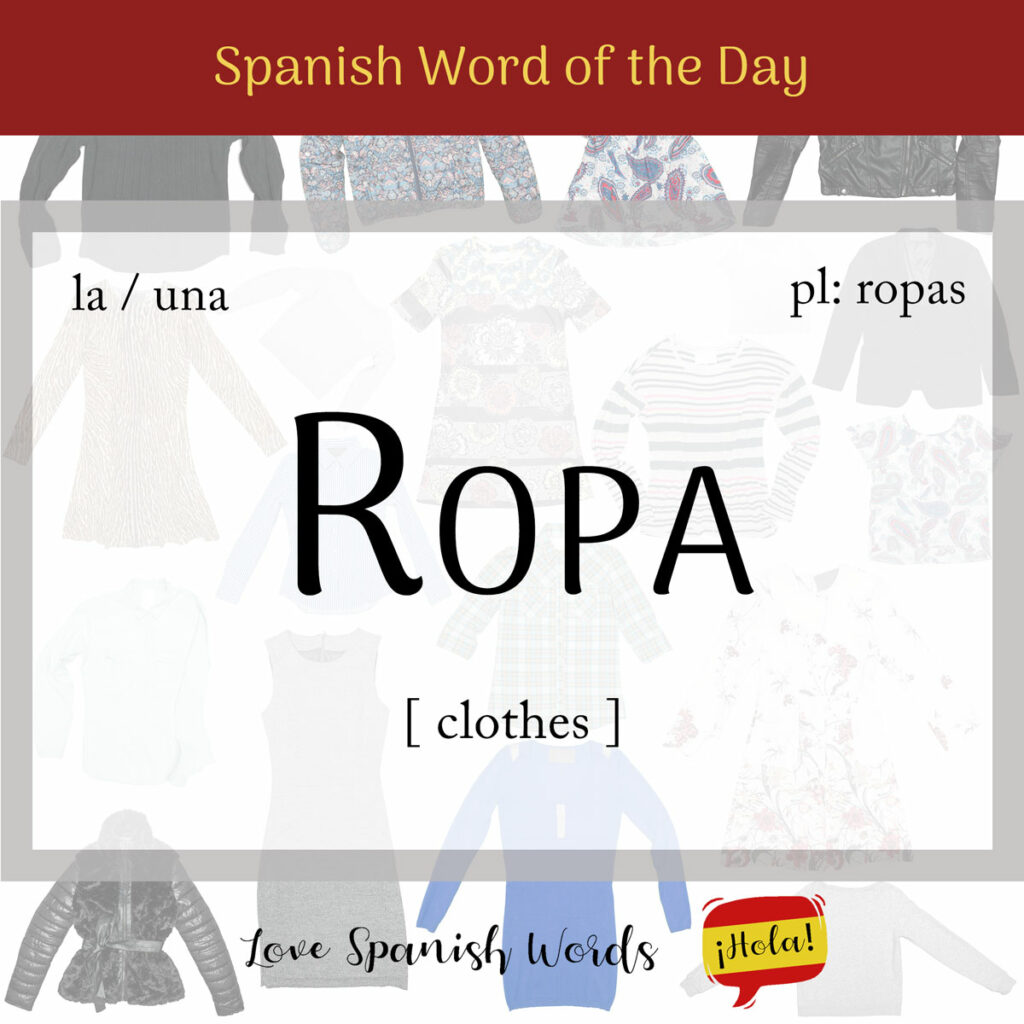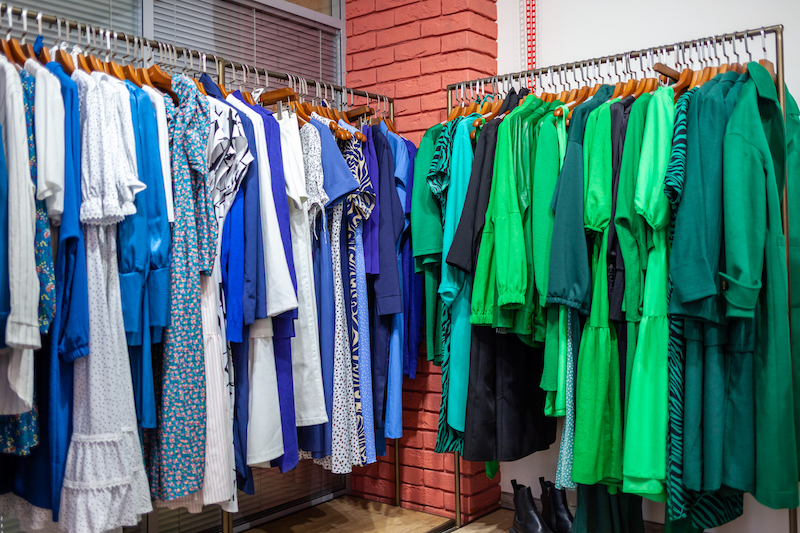Many of my students often find the word ropa a bit confusing when it comes to using it in different contexts. Although it’s typically translated as clothing or clothes, ropa actually traces back to the late Latin term raupa, which referred to a robe or garment. Interestingly, ropa also shares a linguistic link with the English word robe.
Latin American Pronunciation
European Pronunciation

Ropa is a feminine noun that takes the following definite and indefinite articles:
- la ropa = the clothing
- las ropas = the clothes (less commonly used in plural form)
- una ropa = a piece of clothing (context-specific, not commonly used this way)
- unas ropas = some clothes (rarely used, but possible in specific contexts)
Ropa is mostly used in the singular form, as it refers to clothing as a collective whole.
Ropa is a versatile term that can be applied in various situations. The most common use of ropa refers to general clothing or garments. But, it can also be modified to specify certain kinds of clothing, such as:
- ropa interior = underwear
- ropa de cama = bed linens
- ropa deportiva = sportswear
- ropa de trabajo = work clothes
- ropa de invierno = winter clothing
- ropa de verano = summer clothing
- ropa de baño = swimwear
- ropa de fiesta = party wear
- ropa formal = formal wear
- ropa casual = casual wear
- ropa de segunda mano = second-hand clothing
Voy a lavar la ropa.
I am going to wash the clothes.
Ropa can also be used figuratively to describe how a person is perceived based on their clothing. For example, someone can say: Vístete bien, la ropa dice mucho de ti (Dress well, clothing says a lot about you). In some areas, ropa can colloquially refer to any outfit or style, including informal ones. The term ropa floja (loose clothing) is commonly used.
Now, since ropa covers a broad range of clothing items, from everyday wear to specialised garments for different occasions, let’s explore some key pieces you can use. For instance, a typical outfit might include a camisa (shirt) and pantalones (pants), which can be dressed up or down depending on the occasion. During colder months, ropa de abrigo like a chaqueta (jacket) or suéter (sweater) becomes essential. For formal events, you might opt for a vestido (dress) or a traje (suit). In casual settings, ropa deportiva like pantalones cortos (shorts) and a camiseta (T-shirt) are common. Additionally, for the beach or pool, you’ll need ropa de baño (swimwear), while ropa interior (underwear), calcetines (socks), and zapatos (shoes) are daily essentials.
Quiero comprar ropa nueva.
I want to buy new clothes.

Fun Fact:
The word for T-shirt can vary depending on the country. For instance, in Argentina and Uruguay, it’s commonly called remera, while in Chile and Bolivia, it’s often referred to as polera. These regional differences can sometimes be confusing, especially when you mix up words that sound similar. For example, don’t confuse remera (T-shirt) with ramera (prostitute), which could lead to some awkward misunderstandings if you ask someone where to buy a ramera!
In Cuba and the Canary Islands, ropa vieja (literally old clothes) is a popular dish made with shredded beef and vegetables. The name comes from its appearance—tender shreds of beef resembling torn clothing. The dish itself is an interesting metaphor for the way remnants of past meals can be transformed into something new and flavourful.

Spanish idioms featuring ‘ropa’ (and other items of clothing)
Andar con la ropa puesta
Literal translation: walking with clothes on
English meaning: to be cautious or on guard
Llevar los pantalones
Literal translation: wearing the pants
English meaning: to be in charge, usually in the context of a relationship.
Sacar los trapos sucios
Literal translation: airing the dirty laundry
English meaning: to reveal secrets
Sacarse la ropa
Literal translation: to take off clothes
English meaning: to reveal one’s true self or intentions

